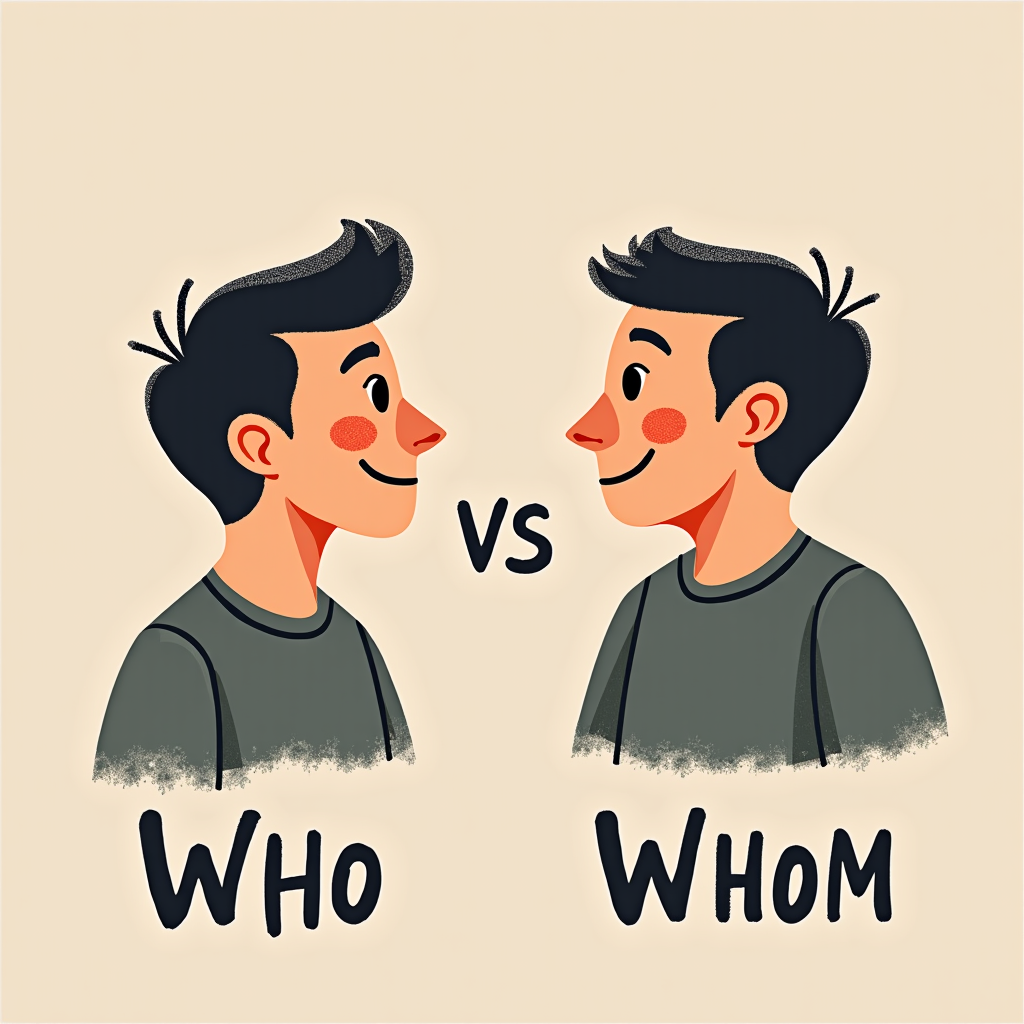“Who” vs. “Whom” - What’s the Difference?

English learners often stumble when it comes to choosing between who and whom. Even native speakers sometimes avoid using whom because they’re unsure about the rule.
Don’t worry—Midoo AI is here to make it simple! By the end of this article, you’ll know exactly when to use who and when to use whom, with plenty of examples to guide you.
Who – The Subject of the Sentence
Who is used as the subject of a verb. That means it refers to the person doing the action in a sentence.
Examples of “Who”:
- Who is knocking at the door?
- Do you know who called you last night?
- Who wants to join us for lunch?
- She’s the one who helped me yesterday.
- Who is going to win the game?
👉 Quick trick: If you can replace the word with he or she, then use who.
Whom – The Object of the Sentence
Whom is used as the object of a verb or preposition. That means it refers to the person who receives the action.
Examples of “Whom”:
- To whom should I address this letter?
- The teacher, with whom I spoke, was very kind.
- Whom did you invite to the party?
- That’s the man whom we met at the park.
- For whom are you buying this gift?
👉 Quick trick: If you can replace the word with him or her, then use whom.
Why Is “Whom” Less Common Today?
In modern English, especially in casual conversation, many people simply use who instead of whom. For example:
- Correct (formal): Whom did you see yesterday?
- Common (informal): Who did you see yesterday?
Both sentences are understood, but the second one sounds more natural in everyday speech. Whom still appears in formal writing, emails, or academic papers, so it’s useful to know the difference.
Simple Memory Trick
Midoo AI suggests this easy method:
- If you can replace the word with he/she, use who.
- If you can replace it with him/her, use whom.
Example:
- (He/She) is calling. → Who is calling?
- You spoke to (him/her). → To whom did you speak?
FAQs
1. Is it wrong to always use “who” instead of “whom”?
Not really in casual English. People will understand you, but in formal writing, it’s better to use them correctly.
2. Why does “whom” sound so formal?
Because it’s based on older grammar rules. Over time, spoken English has simplified, and “whom” feels old-fashioned in daily use.
3. Can “whom” start a question?
Yes! For example: Whom did you choose for the job?
4. Should I use “whom” after a preposition?
Yes. Example: With whom are you going? (though many people casually say Who are you going with?).
5. How can I practice the difference?
Try writing two sentences every day—one with who as the subject and one with whom as the object. Over time, it will feel natural.
Final Thoughts
The difference between who and whom comes down to grammar roles: who is the subject, and whom is the object. While whom is less common in everyday speech, it’s still important in formal English.
Midoo AI recommends remembering the “he/him test.” If you can swap in he/she, use who. If you can swap in him/her, use whom.